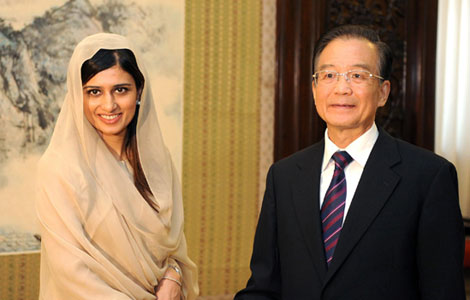Charities must make public their spending
Updated: 2011-08-25 07:37
By He Dan (China Daily)
|
|||||||||||
BEIJING - All charitable organizations will be required to make timely releases of information related to their fundraising, projects and distributions of donors' money, according to a new Ministry of Civil Affairs regulation.
The change, which will take effect in September unless the public strongly objects to it, came amid a series of scandals that have raised doubts over the ways charities use the money and goods given them.
To lay the suspicions to rest, the ministry drafted the regulation, named Guidance on Information Disclosure for Public-Welfare and Charitable Donations. It has been published on the ministry's official website, and the public are invited to comment on it until the end of this month.
The draft requires philanthropic institutions and social-welfare organizations to improve how they disclose information and to subject themselves to more public supervision.
The regulations stipulate that charitable organizations should publish information about donations within 24 hours of receiving them if they were made for disaster relief or similar purposes. In less pressing times, charities will have seven working days to make such information public.
Charities are being encouraged to make the disclosures no later than a month after they have distributed donated money or goods to beneficiaries. And they are to tell the public and benefactors at intervals no greater than six months in length about how their donations are being spent.
The draft also sets out detailed requirements governing what charities should disclose.
The guidance rules call on charitable organizations to disclose details about their fundraising, such as why they are raising money, what partners they are working with and how much they are spending on administrative tasks and on other things.
Charitable organizations are also to provide photos, statistics and documents showing the achievements and progress of their philanthropic projects.
China Charity Federation, a leading charitable organization, was recently accused of mishandling 15 million yuan ($2.34 million) in corporate donations.
And the Red Cross Society of China lost credibility after a woman claiming she worked for an organization affiliated with the charity boasted of her lavish lifestyle online.
Zheng Yuanchang, who heads the charity and social donation department of the Ministry of Civil Affairs, said the recent charity scandals have made the regulations more "urgent and necessary".
"We have been considering formulating the regulations since last November, and the recent scandals have helped to speed up the process," Zheng said.
Xu Yongguang, promoter of the China Foundation Center, a Beijing-based non-governmental organization that concentrates on making foundations in China more transparent, believed that the guidance will not have its desired effects unless it is reinforced by punishments and awards.
"The regulations will be nothing but empty talk unless the government can tell charitable organizations what punishments they will face if they don't follow the rules and how they can benefit from making their work more visible," Xu said.
Xu said about two thirds of the country's 2,000 charitable foundations have not set up websites and the China Foundation Center still has difficulty persuading them to release annual financial reports.
He said that in 2010, only 70 percent of the foundations in the country disclosed such reports using the center's website.
Zheng said he believes there will be an incentive for charity organizations to follow the guidance. Those that do not release the required information or do so late will see their reputations sullied and will lose the trust of the public.
The rules emphasize that charitable organizations should get the permission of donors and recipients before making data about them public.
Chen Guangbiao, an entrepreneur and high-profile philanthropist from East China's Jiangsu province, said donors' privacy must be respected.
"A lot of businessmen prefer to do charity work anonymously to avoid unnecessary troubles and being pressured to give more to others in need," Chen said.
- Live Report: Bounty for Gadhafi as fight rages
- Proposals to ban torture testimony
- Conoco to be sued over oil leak
- Watchdog suspected over toxic waste
- Russia, DPRK agree on nuke issues
- Moody's cuts Japan rating to Aa3
- Oil firm vows to clean up spills
- Live Report: Gadhafi says withdrawal tactical move
Hot Topics
Anti-Gay, Giant Panda, Subway, High Speed Train, Coal Mine, High Temperature, Rainstorm, Sino-US, Oil Spill, Zhu Min
Editor's Picks

|

|

|

|

|

|






